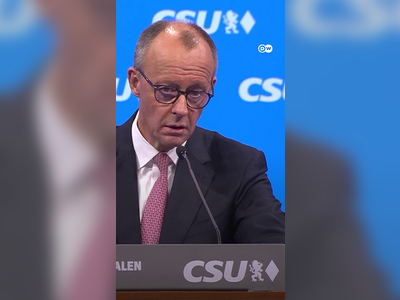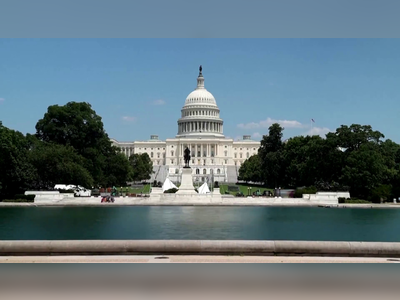Marcus Aurelius: The Philosopher-King's Modern Revival
Marcus Aurelius' 'Meditations' gain renewed interest as a major exhibition in Trier highlights his influence on contemporary discussions about leadership and morality.
The philosophical reflections of Roman Emperor Marcus Aurelius, penned in his personal journal and later compiled into the work known as "Meditations," have resurfaced in public discourse with remarkable relevance.
Written between 161 and 180 C.E., these contemplations on virtue and governance were intended for his own use and not for publication.
However, they have become some of the most widely read texts in history, surpassing many ancient and modern publications in popularity, with numerous translations available worldwide.
Marcus Aurelius ruled during a tumultuous period characterized by military conflict, economic instability, and the spread of the Antonine Plague across the Roman Empire.
His reign, beginning in 161 C.E., coincided with the Marcomannic Wars, wherein he faced pressing challenges including invasions by Germanic tribes, internal strife, and societal upheaval.
Key tenets of Stoic philosophy, including the principle of equanimity, significantly influenced Marcus Aurelius.
Through his writings, he sought to define what constitutes good leadership and governance, a question that remains pertinent in contemporary society.
Archaeologist Marcus Reuter, director of the Rheinisches Landesmuseum in Trier, noted that Aurelius did not consider himself a philosopher during his lifetime, and his writings were deeply personal and confined to his private thoughts.
An upcoming exhibition co-curated by Reuter and historian Viola Skiba in Trier, running from June 15 to November 23, 2025, aims to explore the themes present in Aurelius' work.
Skiba highlighted that the relevance of these themes has been amplified in today's polarized and crisis-laden global context, reiterating the age-old debate around effective leadership.
The exhibition intends to provoke reflection on the qualities that define good governance.
According to Skiba, Aurelius' conception of leadership revolved around cardinal virtues such as wisdom, justice, prudence, and moderation.
These attributes emphasize a governance style that prioritizes the common good over individual gain.
In contrast, modern political figures, such as former U.S. President Donald Trump, have been discussed in this context, with Reuter suggesting that Aurelius would likely not view Trump as an exemplary leader.
Despite his virtuous aspirations, Marcus Aurelius was a figure of his time, operating within a system that included slavery and significant social inequality.
His governance also involved military campaigns, which were deemed necessary for the protection of the Empire.
The construction of significant infrastructures, such as the Porta Nigra in Trier—a prominent landmark—was an aspect of his commitment to securing and safeguarding the Empire.
Marcus Aurelius practiced a modest lifestyle, distinguishing himself by auctioning off his personal items during financial crises faced by the state, an act unprecedented among Roman emperors.
His reflections, such as "Very Little is Needed to Make a Happy Life," resonate with contemporary audiences, particularly youth seeking philosophical guidance in their lives.
Reuter noted the accessibility of Aurelius' writings, which lend themselves to selective reading, making them suitable for drawing inspiration in various life situations.
The upcoming exhibition seeks to bridge Aurelius' ancient wisdom with modern concerns, inviting a global audience to explore the complexities of leadership and personal ethics.
As Skiba remarked, the inquiry into personal and collective responsibility remains crucial across time, emphasizing the connection between the individual and societal well-being.
Written between 161 and 180 C.E., these contemplations on virtue and governance were intended for his own use and not for publication.
However, they have become some of the most widely read texts in history, surpassing many ancient and modern publications in popularity, with numerous translations available worldwide.
Marcus Aurelius ruled during a tumultuous period characterized by military conflict, economic instability, and the spread of the Antonine Plague across the Roman Empire.
His reign, beginning in 161 C.E., coincided with the Marcomannic Wars, wherein he faced pressing challenges including invasions by Germanic tribes, internal strife, and societal upheaval.
Key tenets of Stoic philosophy, including the principle of equanimity, significantly influenced Marcus Aurelius.
Through his writings, he sought to define what constitutes good leadership and governance, a question that remains pertinent in contemporary society.
Archaeologist Marcus Reuter, director of the Rheinisches Landesmuseum in Trier, noted that Aurelius did not consider himself a philosopher during his lifetime, and his writings were deeply personal and confined to his private thoughts.
An upcoming exhibition co-curated by Reuter and historian Viola Skiba in Trier, running from June 15 to November 23, 2025, aims to explore the themes present in Aurelius' work.
Skiba highlighted that the relevance of these themes has been amplified in today's polarized and crisis-laden global context, reiterating the age-old debate around effective leadership.
The exhibition intends to provoke reflection on the qualities that define good governance.
According to Skiba, Aurelius' conception of leadership revolved around cardinal virtues such as wisdom, justice, prudence, and moderation.
These attributes emphasize a governance style that prioritizes the common good over individual gain.
In contrast, modern political figures, such as former U.S. President Donald Trump, have been discussed in this context, with Reuter suggesting that Aurelius would likely not view Trump as an exemplary leader.
Despite his virtuous aspirations, Marcus Aurelius was a figure of his time, operating within a system that included slavery and significant social inequality.
His governance also involved military campaigns, which were deemed necessary for the protection of the Empire.
The construction of significant infrastructures, such as the Porta Nigra in Trier—a prominent landmark—was an aspect of his commitment to securing and safeguarding the Empire.
Marcus Aurelius practiced a modest lifestyle, distinguishing himself by auctioning off his personal items during financial crises faced by the state, an act unprecedented among Roman emperors.
His reflections, such as "Very Little is Needed to Make a Happy Life," resonate with contemporary audiences, particularly youth seeking philosophical guidance in their lives.
Reuter noted the accessibility of Aurelius' writings, which lend themselves to selective reading, making them suitable for drawing inspiration in various life situations.
The upcoming exhibition seeks to bridge Aurelius' ancient wisdom with modern concerns, inviting a global audience to explore the complexities of leadership and personal ethics.
As Skiba remarked, the inquiry into personal and collective responsibility remains crucial across time, emphasizing the connection between the individual and societal well-being.
Translation:
Translated by AI
AI Disclaimer: An advanced artificial intelligence (AI) system generated the content of this page on its own. This innovative technology conducts extensive research from a variety of reliable sources, performs rigorous fact-checking and verification, cleans up and balances biased or manipulated content, and presents a minimal factual summary that is just enough yet essential for you to function as an informed and educated citizen. Please keep in mind, however, that this system is an evolving technology, and as a result, the article may contain accidental inaccuracies or errors. We urge you to help us improve our site by reporting any inaccuracies you find using the "Contact Us" link at the bottom of this page. Your helpful feedback helps us improve our system and deliver more precise content. When you find an article of interest here, please look for the full and extensive coverage of this topic in traditional news sources, as they are written by professional journalists that we try to support, not replace. We appreciate your understanding and assistance.











